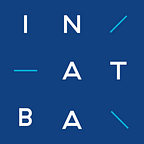INATBA Convenes Global Education Roundtable on Blockchain Targets and Content
The International Association for Trusted Blockchain Applications (INATBA) brought together global thought leaders in education and blockchain Thursday to discuss how the emerging technology can best improve academic institutions around the world, fostering partnerships between the private and public sectors.
“How can we best deliver blockchain to education?” asked moderator Margherita Leder, chair of the INATBA Education Working Group. “What are the newest and best ways to deliver that the technology can deliver to help ensure improvement to education systems and services?”
Filippo Zatti, a professor with the Università degli Studi di Firenze, said the three main features of blockchain education are a multi-disciplinarian approach, agreement on a mutually shared language and developing personal pathways for learners.
“We are at an early stage, but the education of new professionals can take a long time, so we need to act sooner than later,” Zatti said. “We cannot succeed if we don’t give an education perspective to any field of learning.”
Ludovic Courcelas with the European Union Blockchain Observatory and Forum, agreed. “We need to have leadership teams that understand blockchain and appreciate the impact it can have on their businesses. We need to have delivery teams that are trained and skilled to deliver properly and efficiently.”
In a recent EBOF survey, 89 percent of respondents said they taught themselves about blockchain technology. “That’s consistent with the maturity of the ecosystem, but it’s something we need to fix,” Courcelas said.
Luz Parrondo, director of postgraduate blockchain programs at the UPF Barcelona School of Management, said CEOs and CTOs should be the main target of education efforts. “At the beginning, we need to make a clear difference between blockchain and tokens and crypto. A lot of people think blockchain is just about tokens — we need to go away from that,” she said.
Added Parrondo, “We have to begin with baby steps, in teaching CEOs and CTOs how their processes can be very much improved with very little effort or investment. Otherwise, they just get scared. We need to teach them at blockchain is just a tool, like the internet, that will help them improve their processes. Once they get there, then the rest will come along.”
Donna Redel of Fordham University agreed, saying that messages about risk management resonate well with senior managers.
“One phrase that senior management reacts positively to is anything around risk management,” Redel said. “If blockchain can be used on supply chain, to mitigate risk, or in other ways, to enhance risk management, that’s a concept they grasp. If their competitors are doing it, and they’re not, then they’re in a negative position” that they will want to address.
Wim Stalsman of Infrachain said that in targeting the corporate and academic worlds, a holistic approach is needed.
“It is not only about having executive teams educated on blockchain, because blockchain is in the long term a cultural change, a change in mindset. So it’s about educating the entire set of people who make up an organization,” he said. “This is about boards of directors, executive teams, middle management and specialists. It’s important to bring all these people together and have an interaction between them — not only within the company, but outside of it too, to understand where we come from, and where we’re going.”
Parrondo said a major challenge will be to break the assumptions and stereotypes that businesspeople have of blockchain and DLT technologies. “That’s one of the things that I want to do — to talk about the different content, and then give businesspeople a global view of how they can relate in different ways and break the unbreakable rules,” she said.
Jacopo Sesana, COO of Blockchain Italia, emphasized the specific need to train the leaders who are in charge of process development within companies, in order to engage business leaders.
